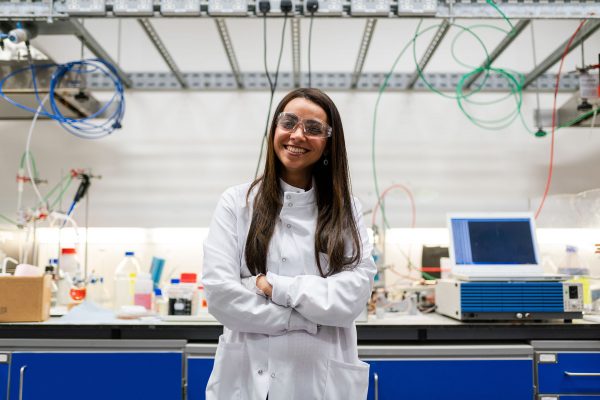Together with Imperial College London, DNAe has been awarded a UK Knowledge Transfer Partnership (KTP) by Innovate UK to support development of its next generation sequencing (NGS)-based diagnostic platform for use in cancer monitoring.
The KTP program connects innovative businesses with academic experts who can help them deliver their ideas. This award formalises a collaboration between DNAe and Professor Charles Coombes, professor of medical oncology at Imperial. The work of the KTP will build on the existing research partnership between Professor Coombes and Professor Jacqui Shaw, head of the Department of Genetics and Genome Biology and professor of Translational Cancer Genetics at the University of Leicester.
The aim of the program is to develop a ‘liquid biopsy’ test based on DNAe’s proprietary “sample to answer” NGS technology, to directly detect and identify biomarkers and mutation hotspots that have been identified in Professors Coombes’ and Shaw’s research. This will enable these markers to be used to monitor treatment and detect early recurrence of breast cancer. Under the terms of the partnership, a post graduate researcher (the KTP Associate) will be based at DNAe to integrate expertise from the academic partners into the development of the test.
Samuel Reed, CEO of DNAe, said: “Recognising that October is Breast Cancer Awareness Month, we’re delighted to formally announce our collaboration with world experts Professors Coombes and Shaw who bring their extensive knowledge of using circulating tumour DNA to manage the treatment of breast cancers. Through this KTP award, we will be able to harness that deep expertise and combine it with our proven diagnostic technology.”
DNAe’s integrated, sequencing-based technology will bring genomic analysis to the point-of-need, enabling testing to move out of specialist laboratories and closer to the patient. By detecting and sequencing tumour DNA directly from raw blood samples in a matter of hours, DNAe’s platform has the potential to expose unresponsive or recurrent cancer earlier.
Professor Charles Coombes, professor of medical oncology, Imperial, and honorary consultant medical oncologist, Imperial College Healthcare Trust, said: “Cancer monitoring is a vital component of successful treatment. Firstly, we need to ensure a patient’s tumour is responding to the therapy, and secondly, patients in remission must be monitored for signs of recurrence. The current monitoring options are slow, and any delays to appropriate cancer care can lower the chance of survival and increase treatment-associated problems and costs. Although we are at the early stages, I believe that DNAe’s integrated, sequencing-based platform could ultimately provide rapid, actionable information that saves patients’ lives.”
Professor Jacqui Shaw, head of the Department of Genetics and Genome Biology, University of Leicester, added: “This is an exciting collaboration with DNAe and Imperial, where we will combine our expertise to develop a rapid integrated liquid biopsy platform for management of patients with breast cancer.”











